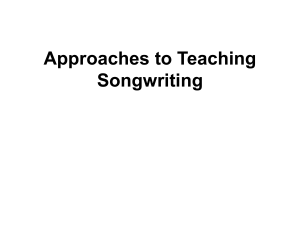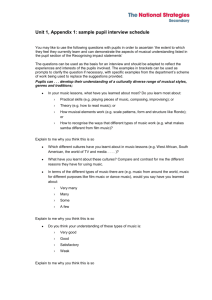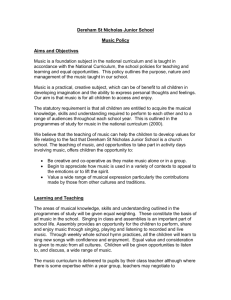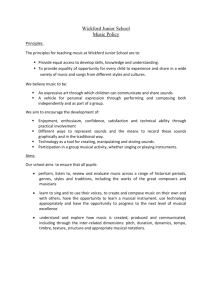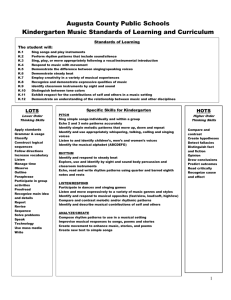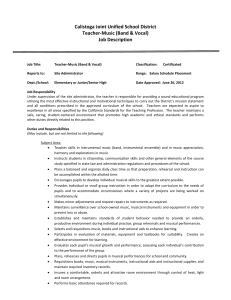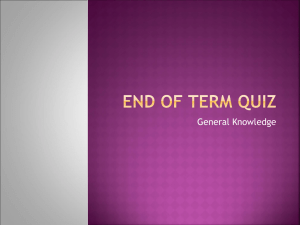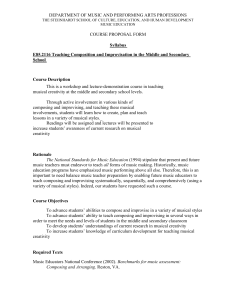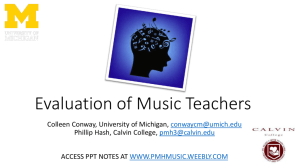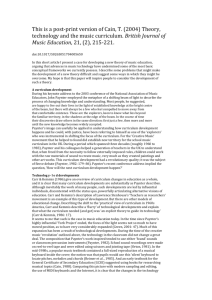Music for website - New Longton All Saints` School
advertisement
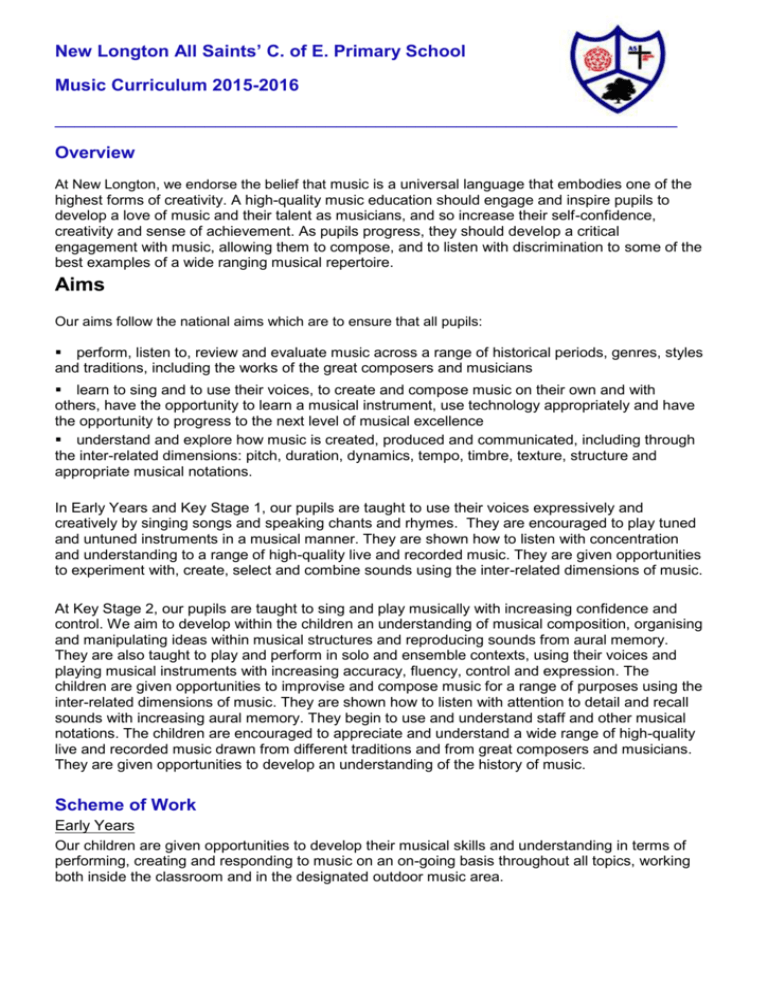
New Longton All Saints’ C. of E. Primary School Music Curriculum 2015-2016 ______________________________________________________________ Overview At New Longton, we endorse the belief that music is a universal language that embodies one of the highest forms of creativity. A high-quality music education should engage and inspire pupils to develop a love of music and their talent as musicians, and so increase their self-confidence, creativity and sense of achievement. As pupils progress, they should develop a critical engagement with music, allowing them to compose, and to listen with discrimination to some of the best examples of a wide ranging musical repertoire. Aims Our aims follow the national aims which are to ensure that all pupils: perform, listen to, review and evaluate music across a range of historical periods, genres, styles and traditions, including the works of the great composers and musicians learn to sing and to use their voices, to create and compose music on their own and with others, have the opportunity to learn a musical instrument, use technology appropriately and have the opportunity to progress to the next level of musical excellence understand and explore how music is created, produced and communicated, including through the inter-related dimensions: pitch, duration, dynamics, tempo, timbre, texture, structure and appropriate musical notations. In Early Years and Key Stage 1, our pupils are taught to use their voices expressively and creatively by singing songs and speaking chants and rhymes. They are encouraged to play tuned and untuned instruments in a musical manner. They are shown how to listen with concentration and understanding to a range of high-quality live and recorded music. They are given opportunities to experiment with, create, select and combine sounds using the inter-related dimensions of music. At Key Stage 2, our pupils are taught to sing and play musically with increasing confidence and control. We aim to develop within the children an understanding of musical composition, organising and manipulating ideas within musical structures and reproducing sounds from aural memory. They are also taught to play and perform in solo and ensemble contexts, using their voices and playing musical instruments with increasing accuracy, fluency, control and expression. The children are given opportunities to improvise and compose music for a range of purposes using the inter-related dimensions of music. They are shown how to listen with attention to detail and recall sounds with increasing aural memory. They begin to use and understand staff and other musical notations. The children are encouraged to appreciate and understand a wide range of high-quality live and recorded music drawn from different traditions and from great composers and musicians. They are given opportunities to develop an understanding of the history of music. Scheme of Work Early Years Our children are given opportunities to develop their musical skills and understanding in terms of performing, creating and responding to music on an on-going basis throughout all topics, working both inside the classroom and in the designated outdoor music area. KS 1 Year 1 Year 2 Autumn 1 Animal Songs Autumn 2 Sound effects Spring 1 Spring 2 Space sounds; Weather sounds Space-themed and songs songs Chants and Rhymes Sea Shanties Percussion Summer 1 Action Rhymes Summer 2 Carnival Music; Percussion; Song Lyrics Playing Tuned and Untuned Instruments Listening Improvising Using Voices KS2 Year 3 Autumn 1 Composition Year 4 Writing song lyrics Year 5 Space inspired music & Themes Year 6 Listening, Improvising and Composing Autumn 2 Music of the 20th Century Spring 1 Improvising Spring 2 Vegetable orchestra Singing Summer 2 Performing using metal objects from instruments Composing Lyrics Traditional and cultural music Composing & singing Listening, Performing and Composing Soundscapes Summer 1 Tudor Music; Composition Appraising; Listening to Voices Pulse and Rhythm Sound; Digital Technologies; Recordings Assessment As part of the National Curriculum reform, the previous system of ‘levels’ used to report children’s attainment has been removed. The removal of levels has allowed us a greater flexibility in the way that we plan and assess the children’s learning. The programme of study for Music, sets out expectations for the end of each key stage, and children will be assessed against these objectives as they progress through each year.

